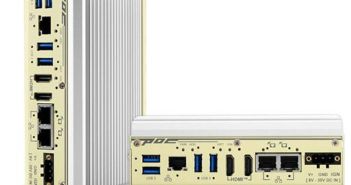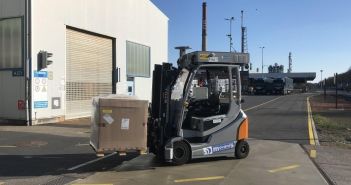The digitalization of cities and municipalities in Germany offers numerous opportunities and chances for development. However, in order to fully utilize these opportunities, a suitable Smart City strategy is necessary. Neglecting the development of a Smart City could lead to a loss of attractiveness for cities and municipalities in the near future. This conclusion is based on the expertise of a team of experts from the Federal Association of German Management Consultants (BDU), specializing in the public sector, energy industry, and public transportation.
Experts advocate making Smart City development a top priority
The experts from the Bundesverband Deutscher Unternehmensberater (BDU) emphasize the importance of making the development of a Smart City a top priority. They argue that the success of such initiatives relies on the commitment and leadership of city administrations, who need to drive the idea, strategy, and initiatives forward while integrating various municipal infrastructure fields such as energy, transportation, environment, waste management, and housing.
A central, shared data infrastructure is a crucial prerequisite for the advancement of the Smart City initiative. This enables comprehensive use of operational data from system partners for analysis and control purposes. Such a framework allows for the attainment of both economic and ecological benefits. It is essential that the municipalities maintain authority and responsibility over data collection, utilization, and processing.
The development of Smart Cities revolves around the central idea of user-friendliness and the creation of immediate tangible benefits for citizens. This necessitates a strong focus on the needs and preferences of the residents, as well as a willingness to challenge traditional competencies and practices and establish new priorities. A key aspect of this development is the improvement of transportation systems, where cities take on a more prominent role in organizing and regulating mobility. By providing a framework for the mobility system, cities enable residents to access various services offered by both public and private providers through a single application. The city also establishes consistent rules and quality criteria that must be met by system partners. Additionally, the utilization of mobility data by providers such as buses, trains, car sharing, bike sharing, ride sharing, and on-demand shuttles plays a crucial role. However, it is essential to carefully evaluate the sharing or sale of this data to third parties in order to maintain the trust of the municipalities.
The development of smart cities involves not only user-oriented mobility solutions, but also interconnected offerings in the energy and housing sectors. With the ongoing energy transition, transformation of the energy mix, and technological innovations, new citizen services and business models emerge through the collaboration between the energy and housing industries. Examples of this collaboration include smart home solutions in municipal housing, the joint establishment and operation of charging infrastructure, and decentralized energy generation and tenant electricity models. These initiatives are centered around improving the quality of life for citizens through modern neighborhood concepts.
Cities and municipalities need to take an active leadership role in the development of Smart Cities. It is crucial to embrace new approaches and move away from old structures. One significant advantage is the trust that citizens have in the data security provided by municipalities compared to industrial corporations. Effective management of urban traffic requires the analysis of movement and destination data from both public and private participants. A promising starting point could be the implementation of an app that controls all aspects of urban administration, energy offerings, and mobility services.
The development of Smart Cities presents a multitude of advantages, encompassing both economic and environmental benefits. By embracing these opportunities, cities and municipalities have the potential to significantly enhance the quality of life for their residents. Through the integration of technology and data-driven solutions, Smart Cities can optimize resource management, improve transportation systems, and create more sustainable environments. This shift towards smart urbanization is crucial in addressing the challenges of urbanization and ensuring a prosperous future for communities.














